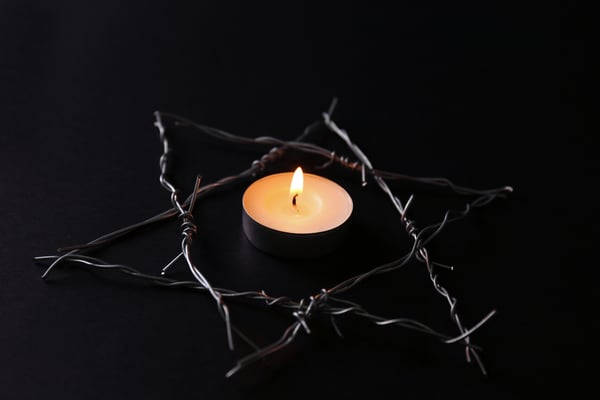Bigots water down the Holocaust’s meaning for dangerous virtue signaling.
By Jonathan Tobin, JNS.org
It was a great day for Israeli diplomacy. For the first time, the U.N. General Assembly passed a resolution sponsored by the Jewish state and it received nearly universal support.
Adopted on Jan. 20—the 80th anniversary of the Wannsee Conference, where Nazi bureaucrats met to meticulously plan the extermination of European Jewry using an industrial model of slaughter—the measure called for the world to adopt the clear definition of antisemitism put forward by the International Holocaust Remembrance Alliance (IHRA), which includes Holocaust denial, and for efforts to combat it.
The success of the initiative, which with equal symbolism was co-sponsored by Germany and eventually by a total of 112 other countries, had been the priority of Israeli Ambassador to the United Nations Gilad Erdan, and his hard work paid off. Only one of the 193 members of the General Assembly—Iran—objected to its passage without the necessity of a roll-call vote.
Erdan was right to note that ignorance of the Holocaust is a major problem and makes denial of the truth about the destruction of European Jewry possible. The passage of the resolution is also helping to focus attention on the international community’s annual Holocaust Remembrance Day commemorations on Jan. 27.
As it is every year, this will allow politicians and other figures to make solemn declarations about the need to honor the victims of the Holocaust, and to stand against antisemitism and hate of any kind. The speeches will remind all that we must use our knowledge about the Holocaust to ensure that similar tragedies are “Never Again” allowed to happen.
But these will be largely empty words. That’s true not just because most of the people uttering them will be merely going through the motions in a massive exercise in virtue-signaling. It’s also because it’s clear that the growth of antisemitic hate speech and actions around the world has been neatly matched by the equally growing volume of lip service to the Holocaust.
Everyone already knows that the “Never Again” talk uttered by world leaders is without value.
Mass atrocities continue to occur around the globe with numbing regularity. Genocide in Rwanda was met with indifference by world leaders, including those, like former President Bill Clinton, who probably thought they meant it when they had given all those speeches about the Holocaust. The same was true about genocide in Darfur in Sudan.
Today, many expressed outrage when the part-owner of the National Basketball Association’s Golden State Warriors was candid enough to say that he “doesn’t care” about the ongoing genocide of ethnic Muslim Uyghurs by the Communist regime in China. The same is true of the NBA, which does a lot of business in China, as well as NBC and other companies that seek to profit from the Winter Olympics being held next month in Beijing by those responsible for this crime. But neither the U.S. government nor most of the American corporate world cares enough about this to do anything more than make weak statements of concern.
But the problem with antisemitism goes a lot deeper than the cynical realpolitik that has given China a pass for its crimes or even the indifference that most in the West feel about anything that happens in Africa.
The roots of Jew-hatred run deep, and they are nurtured by a diverse set of attitudes, including traditional Western antisemitism, Islamist contempt for dhimmis, (second-class-status non-Muslim peoples), and leftist intersectional ideology that promulgates the toxic myth that Jews and the Jewish state are white privileged oppressors who must be delegitimized.
It’s not just that these powerful intellectual and cultural forces have helped fuel a growth in antisemitic attitudes and actions. It’s that some of the same institutions that are happy to join in the chorus of condemnations of the events of 80 years ago often provide platforms for those who are inciting against Jews today.
As the title of Dara Horn’s popular book states, People Love Dead Jews. As she noted, the world idolizes Anne Frank, especially when her legacy is distilled into the largely misleading line from her diary that “people are really good at heart.” That sentiment was used as the concluding line of a popular play and movie adaptation of her story, though she and her family were betrayed, rounded up, imprisoned and then murdered by those who were not good at heart.
In that way, annual commemorations that take place each January to mark the anniversary of the liberation of Auschwitz might be more aptly characterized as the day for loving dead Jews.
That’s especially true at the United Nations and its very agencies, such as the Human Rights Council. That the world body has been a cesspool of antisemitism for decades is no secret, even if its culture has become more comfortable for the Israeli diplomats stationed there.
Despite Erdan’s triumph, the United Nations has not really undergone any sort of transformation when it comes to antisemitism.
As Professor Anne Bayefsky has written in a series of columns published in JNS in the last month, the world body has just embarked on an open-ended inquiry aimed at demonizing the Jewish state. While others have celebrated symbolic resolutions about Holocaust denial, the U.N. bureaucracy has set in motion a program that is building on the legacy of the 2001 Durban conference, where antisemitism was allowed to run riot.
Indeed, the widespread acceptance of the same “apartheid state” lie about Israel that was popularized by the forces that staged Durban is stunning proof that a generation of Holocaust education has done little to deter or prevent contemporary antisemitism when it operates under the guise of anti-Zionism.
Just as important, the proliferation of Holocaust education that seeks to universalize its lessons has had the opposite effect that one might have hoped. Rather than teaching people to respect Jewish rights or to understand how antisemitism has always been an essentially political form of hatred, this universalizing has both drained the Holocaust of its specific content and made it a metaphor for anything people consider awful.
It’s not an accident that Holocaust analogies have proliferated in recent years. Right-wingers analogize it to COVID vaccine mandates they dislike, and left-wingers use it to demonize political figures they abhor, like former President Donald Trump (something that Jewish groups have been particularly guilty of doing). This is happening not because there’s not enough Holocaust education, but because there is too much of the wrong kind that is imparting misleading lessons that give rise to the promiscuous use of it as a political argument.
Indeed, one of the most telling signs of the failure of efforts by the Jewish community on the issue is how individuals and groups that are themselves guilty of seeking to delegitimize Jews and Israel in ways that clearly fit the IHRA definition of antisemitism have no shame about proclaiming themselves opposed to it.
That people like Rep. Ilhan Omar (D-Minn.), political activist Linda Sarsour and their allies at the Council of American-Islamic Relations (CAIR), as well as a host of other groups that support the antisemitic BDS movement against Israel, are all ready to declare their opposition to hatred for Jews and devotion to the memory of the Holocaust tells you all you need to know about how meaningless such talk has become in 2022.
The words we’ll hear spoken on Jan. 27 are, to be sure, better than the open Jew-hatred we hear from Iran and others who deny the Holocaust while plotting a new one.
However, the only real measure of opposition to antisemitism is how willing you are to stand in solidarity with the rights of live Jews, not whether you think the Nazis were bad. So long as the increase in antisemitism is keeping pace with sympathy for dead Jews, Holocaust Memorial Day is simply a means for those who are indifferent or hostile to Jewish survival to virtue signal. As such, it may be doing more harm than good.
Jonathan Tobin is editor-in-chief of the Jewish News Syndicate.
Bring Joy to Israeli Soldiers - Send Winter Care Packages!
We are honored to thank the young men and women of the IDF who risk their lives every day to defend the citizens of Israel.
Join us in sending winter care packages and personal notes of support to Israeli soldiers who are out in the cold all day.
Warm up a soldier's heart with essential winter wear including fleece jackets, hats, gloves and more. Keep an entire unit warm!
THE SOLDIERS REALLY APPRECIATE YOUR LOVE AND CONCERN!
Click Here to Send Your Gift and Personal Note to Israeli Soldiers



